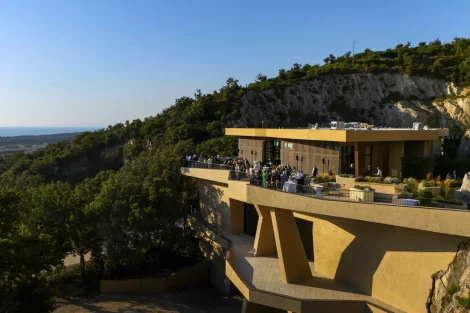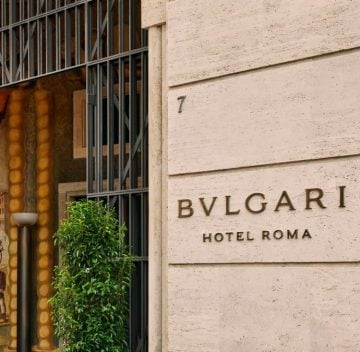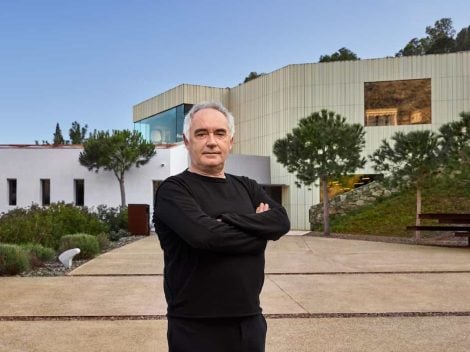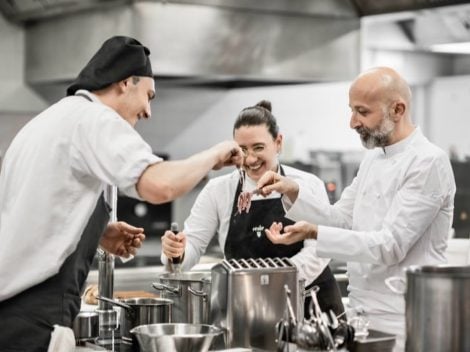In Turin for the Buonissima food event, the protagonist of a brunch talk at Condividere, the Michelin-starred restaurant by Federico Zanasi at Nuvola Lavazza, Yannick Alléno, 56 years old (born in a year of great change – 1968 – perhaps a sign), shared with us his vision of the cuisine of the future, starting from a past to which he feels particularly connected.
Chef Alléno, you had an important relationship with Paul Bocuse, who would have turned one hundred in 2026. What remains of Bocuse’s legacy in today’s cuisine — and in yours?
Paul Bocuse was a very important figure in French gastronomy and in my own development — a mentor and a dear friend. When I was a child, I dreamed of meeting him. I once wrote a letter to a radio program that invited listeners to contact their idols — and my idol was Paul Bocuse.
Today, I believe that both chefs of my generation and the younger ones must, in Bocuse’s spirit, recover a new classicism through sauces and tradition, just as Monsieur Paul did. Tradition can become the new avant-garde — that world of sauces which forms the backbone of French cuisine. The great sauciers have disappeared, yet they were key figures who must be rediscovered and brought back. That’s essential for a new chapter in the great cuisines of the world.
Speaking of the world: you have restaurants all over the globe. Where do you see the greatest creativity today? For example, you’ve turned your Beaupassage restaurant in Paris into a Japanese izakaya… Is that the new cuisine of the future?
Japan has a very interesting culinary culture, but for me the center of world gastronomy today is Dubai.
The world’s axis has shifted toward the Middle East, as it once was centered in Europe. Dubai, where major restaurants from around the world converge — Asian, French like my STAY, Italian — has become a destination that focuses on innovation and reflects the diversity of tomorrow’s cuisine.
Even for fine dining? There’s always debate about whether haute cuisine is finished or not…
Fine dining has many detractors today; many claim it’s over. I absolutely don’t believe that — it’s simply evolving. Everything evolves — cars, phones… everything. We French, for instance, destroyed palace cuisine, the cuisine of sauces. The great sauciers, one of our excellences, have disappeared.
We must recover all of this heritage that lies at the heart of gastronomy, preserve tradition and turn it into avant-garde. Innovation comes from the past — that’s something the critics of fine dining should think about.
You know Italian cuisine well and have praised our ability to create dishes with “humble” ingredients. Is that a path for the future? Do we need to return to our roots?
Italian cuisine has managed to preserve its roots — its link with the land, with simple ingredients, and that spirit of hospitality which is a hallmark of dining in Italy. That’s what must be emphasized — to rediscover and make people rediscover those emotions.
In the Ristoranti d’Italia 2026 Guide, Gambero Rosso awarded a trattoria as Restaurant of the Year. What do you think?
Trattorias are roots, memories, emotions – they embody the hospitality that is typical of Italian cuisine, something almost unique. In that sense, it’s right and natural that the Restaurant of the Year could also be a trattoria.
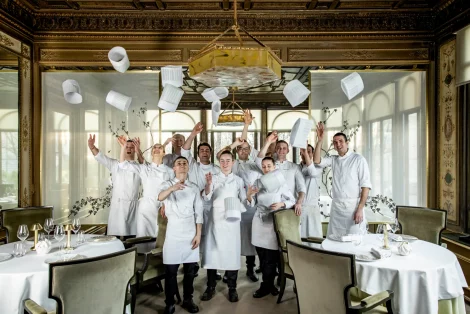
All this requires harmony and collaboration, and you are known for being attentive to the well-being of your teams — even offering psychological support.
It’s fundamental. I’m 56 years old, and I work with young people who are 25, or younger. I grew up in a different world; they are overwhelmed by the violence of today’s world and too often influenced by the models spread through social media. We need to listen to young people and encourage dialogue between generations.
Twice a week, we have a workplace psychologist available for the staff — someone young chefs can turn to for guidance and support. It has truly made a difference in the quality of our work environment.
Cooking is your great passion — you started very young. If you could go back, what would you do?
If I could go back, I would become a chef all over again.

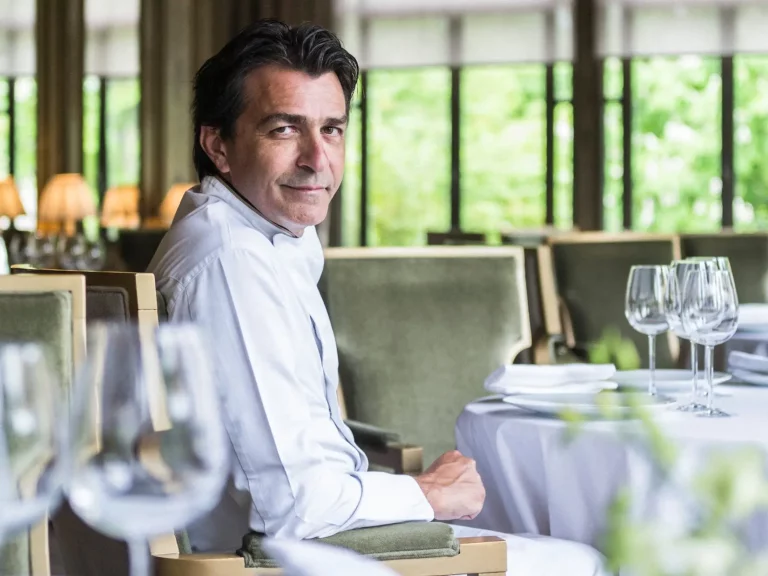
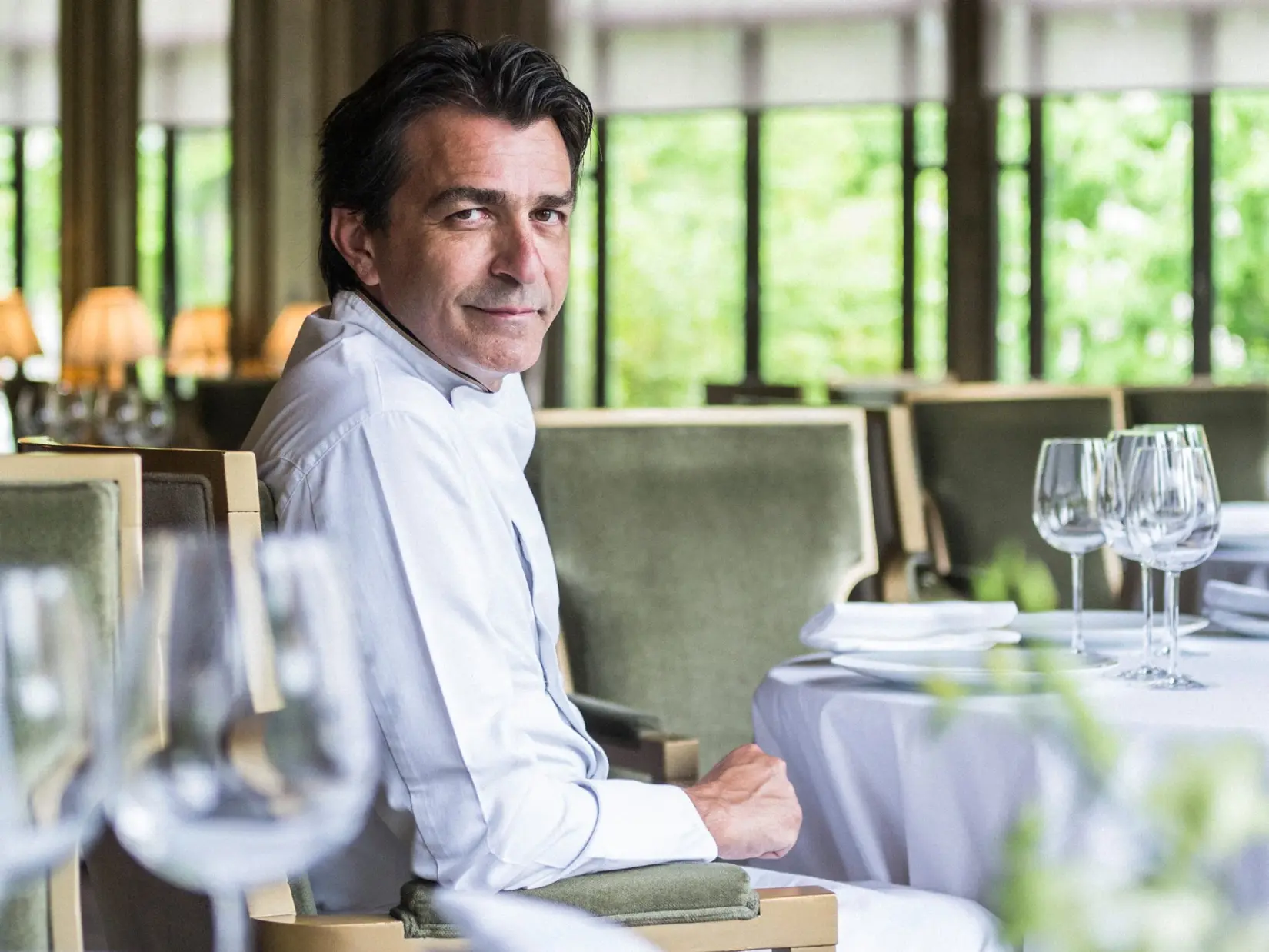 Yannick Alléno: 'No crisis in fine dining, but the future lies in tradition'
Yannick Alléno: 'No crisis in fine dining, but the future lies in tradition'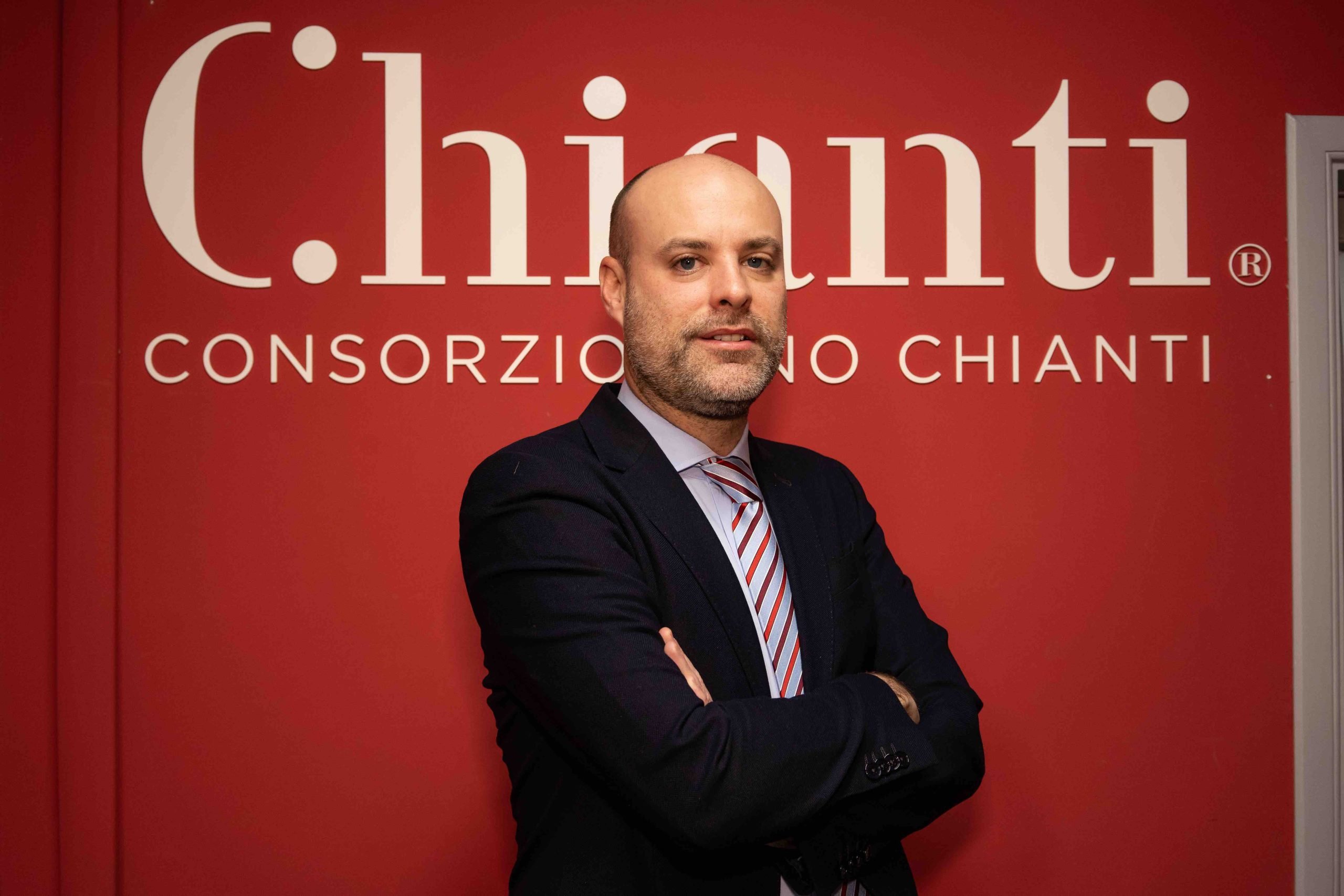 Q&A: Saverio Galli Torrini, director of the Consorzio Vino Chianti
Q&A: Saverio Galli Torrini, director of the Consorzio Vino Chianti London tuk-tuk wine thief given ultimatum by judge
London tuk-tuk wine thief given ultimatum by judge Why Italian wine must change its approach in China
Why Italian wine must change its approach in China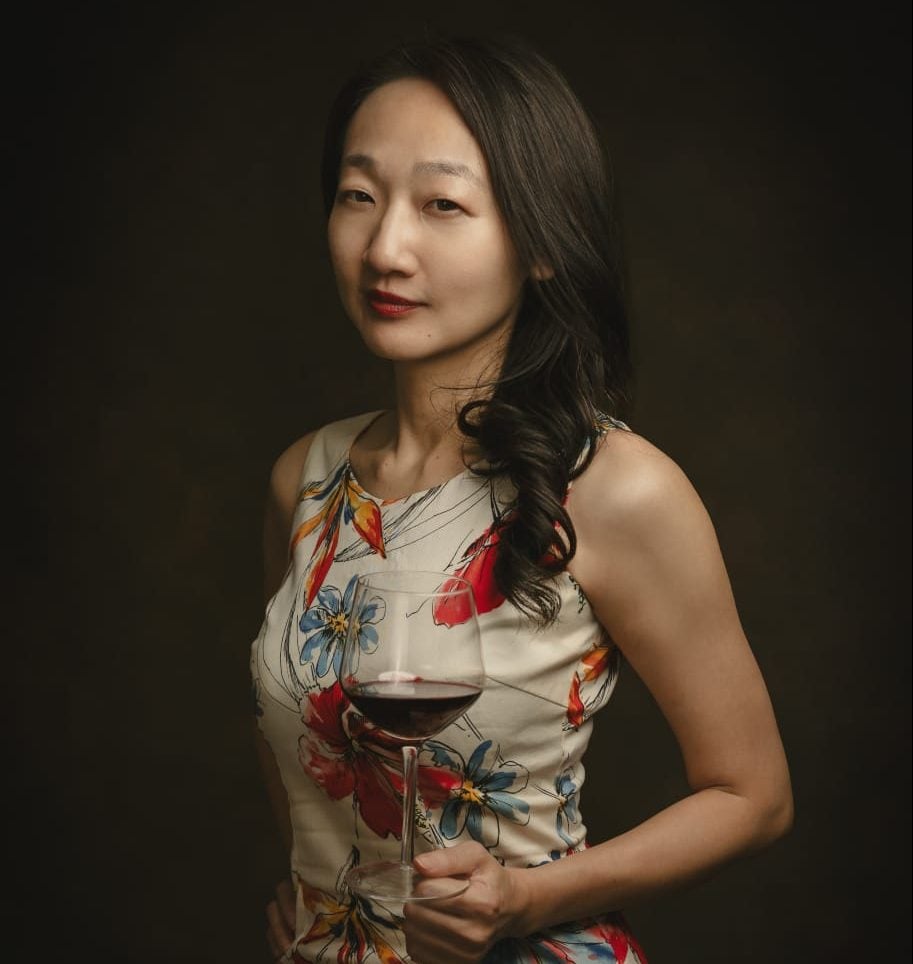 Q&A: Xiaowen Huang
Q&A: Xiaowen Huang
